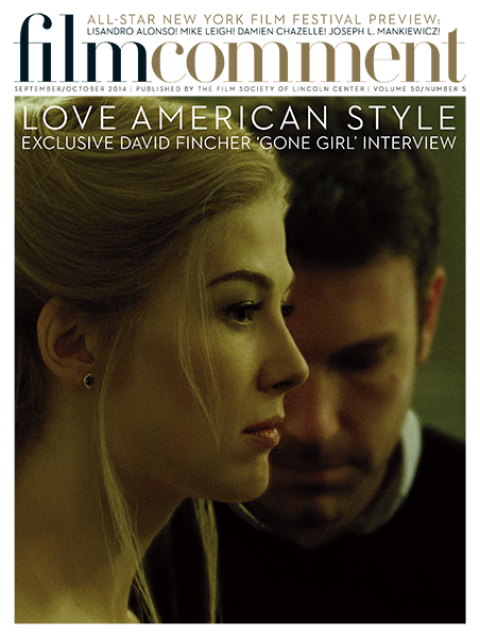
The latest in a long (if frequently dubious) line of contemporary films cataloguing The Way We Live Now, Bird People underscores its socially diagnostic intent from the very start. The camera lingers on the mad rush of Parisians as they stride through a large metro station, eyes and fingers frequently glued to the glowing screens of their portable electronic devices. Settling within a subway car, it makes us privy to the digital documents, snatches of music, and stray thoughts—sometimes uttered aloud, other times heard in voiceover—that circulate throughout the train’s interior as it glides toward its next destination. How connected these dozens of strangers are to their wired-in existences—and yet, how disconnected! That director Pascale Ferran (who co-wrote the film’s screenplay with Guillaume Bréaud) maneuvers the camera through this cavalcade with a certain amount of dexterity and grace hardly makes the underlying message of information-age anxiety feel any fresher.
Eventually, Bird People zeroes in on its twin protagonists: Gary (Josh Charles), an American engineer who arrives in Paris to finalize details on a major project in Dubai; and Audrey (Anaïs Demoustier), a twentysomething who works as a maid in the airport hotel where Gary is staying. Their shared sense of ennui and indecision is quickly telegraphed—lots of staring out windows and listlessly smoking cigarettes—but their journeys of self-discovery proceed for the most part on separate narrative tracks. Gary awakens mid-business-trip to the realization that both his professional and personal lives feel empty and unsatisfying, and informs his business partners and wife Elisabeth (Radha Mitchell) that he will not be returning to any of them. Audrey, meanwhile, finds her daily cleaning routines upended by a fantastical transformative event.
The film nearly capsizes under the dead weight of Gary’s malaise. Replete with such faux-ambiguous signifiers as a mysterious stray cat slinking through the darkness and an auto wreck observed moodily from the backseat of a moving car, this first section of Bird People’s bisected plot strains for an air of coolly observed, au courant emotional alienation but mostly falls back on leaden midlife-crisis clichés. (The only thing more insufferable than the interminable break-up sequence between Gary and Elisabeth is the notion that its occurrence via webcam somehow adds a zeitgeist-relevant patina of digital-age estrangement.)

Things lighten up in multiple senses once the film shifts focus to Audrey’s mysterious evening, which takes her away from her chambermaid duties to observe an assortment of individuals within and beyond the confines of the airport hotel. Freeing herself from the thudding realism of Bird People’s opening half, Ferran weaves together notions of flight, observation, and tenuous interpersonal connection with greater ease, occasionally achieving moments of poignant mystery. This proves particularly true in the film’s handling of hotel receptionist Simon (Roschdy Zem), whose presence is a bridge between Gary and Audrey’s plotlines. Offering a spare cigarette and some fleeting company to Gary during his panic attack, Simon himself contends with financial issues and semi-homelessness—facts that Audrey only discovers when she surreptitiously follows him when he leaves work. Moments like this hint at the rich metaphorical possibilities that the film’s title implies, where the freedom of flight (from responsibility, from boredom, from expectation) cannot be disentangled from feelings of transience and uncertainty.
That Bird People ultimately abandons these more deeply unsettling implications for a banal vision of connection across language and class barriers speaks less to a lack of imagination than to a failure of thematic follow-through. At the risk of taking the avian symbolism a step too far, I’d wager that telegraphing one’s intentions to interrogate the realities of 21st-century dislocation only to settle for hands-across-the-water truisms seems a little chicken.








